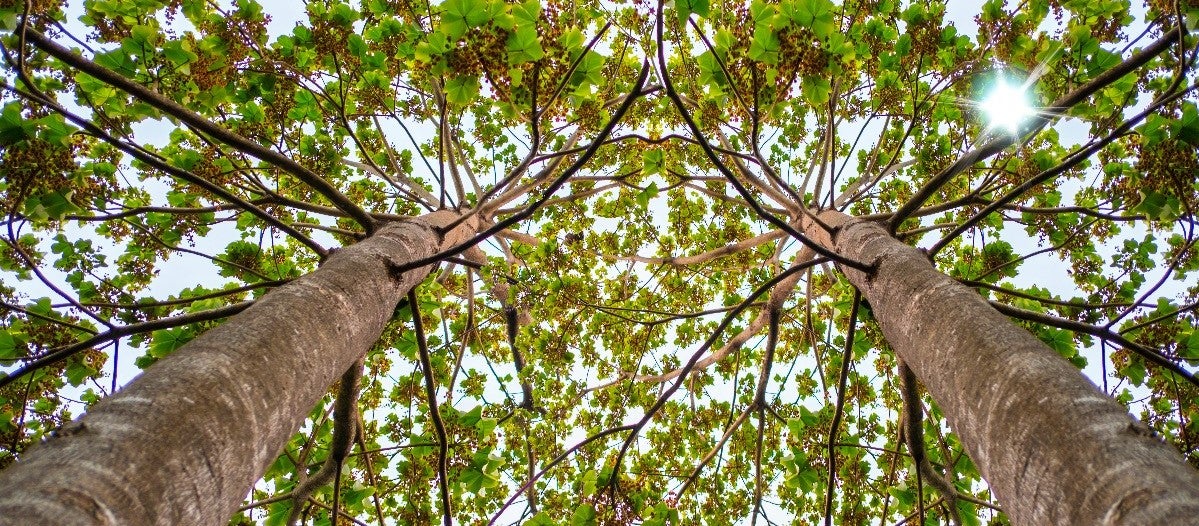 PPPs offer an opportunity toward sustainable technologies and green development | © MAIBYWAY, Shutterstock
PPPs offer an opportunity toward sustainable technologies and green development | © MAIBYWAY, Shutterstock
Public-private partnerships (PPPs) have typically been utilized as a mechanism to finance large infrastructure projects, bringing in private sector resources and expertise to allow governments to focus their scarce resources on other pressing needs. However, for nations that are rich in natural resources, PPPs offer an additional benefit: the potential to leapfrog towards sustainable technologies and associated green development.
The country of Ghana is one example where the government had the foresight to structure legal frameworks that allow for a clearly defined PPP structure between the Ghana Forestry Commission and international players seeking to develop and operate forestry assets. This particular industry is an important one to the country, which once enjoyed a significant revenue stream from the harvesting and processing of tropical hardwoods that are indigenous to the country. However, the rate of such extraction did not match the rate of reforestation, and over the years such valuable timber stocks have declined—and with them the country’s forest cover.
The Ghana Forestry Commission has jurisdiction over a network of forest reserves located across the country. Contradictory to what the name implies, these forest reserves are not necessarily areas of protected forest, but pieces of land that the government historically identified as being of importance for watershed management, protection from rapidly expanding agricultural production, provision of microclimate protection for the burgeoning cocoa supply chain, and as shelter belts.
During the period between 1922 and 1948, these areas were acquired from land-owning communities and put under government management, but with a clearly defined benefit-sharing agreement with the traditional landowners benefitting from any future forestry developments and profit streams that such developments might bring.
As with any developing government with multiple pressing priorities, investments in reforestation were limited to small-scale operations—and at the same time these forest reserves continued to be degraded by a multitude of factors.
In 2014, the government of Ghana restructured the legal framework of the forest reserves to include a dual payment system—of both an annual lease fee and a future stumpage fee—while allowing for foreign participation in the management and commercial reforestation of the reserves, with clearly defined legislation guiding such arrangements.
With this West African nation having the ideal climate and growing conditions for the growing of valuable timber species such as teak, this PPP has opened the door for a number of relationships between the Ghana Forestry Commission and private sector forestry players over the past decade. Such entities, whose focus goes far beyond the traditional growing of teak, include Form Ghana, MIRO Forestry, and EcoPlanet Bamboo—allowing the Ghana Forestry Commission to benefit from foreign direct investment, and more recently, carbon financing. Such international companies typically have a strong focus on sustainability and bring knowledge and technology transfer for processes such as Forest Stewardship Council certification.
At the same time this PPP structure encourages the creation of a large number of rural employment opportunities, while bringing invaluable development to the fringe communities that surround the forest reserves.
But most interesting, is the fact that the Ghana Forestry Commission is not a silent partner in this PPP structure, as is often the case for more traditional PPPs. Instead, they contribute a multitude of support functions as are needed for such forestry operations to achieve long-term success.
You can learn more about EcoPlanet Bamboo’s work in Ghana here.
Disclaimer: The content of this blog does not necessarily reflect the views of the World Bank Group, its Board of Executive Directors, staff or the governments it represents. The World Bank Group does not guarantee the accuracy of the data, findings, or analysis in this post.


Join the Conversation